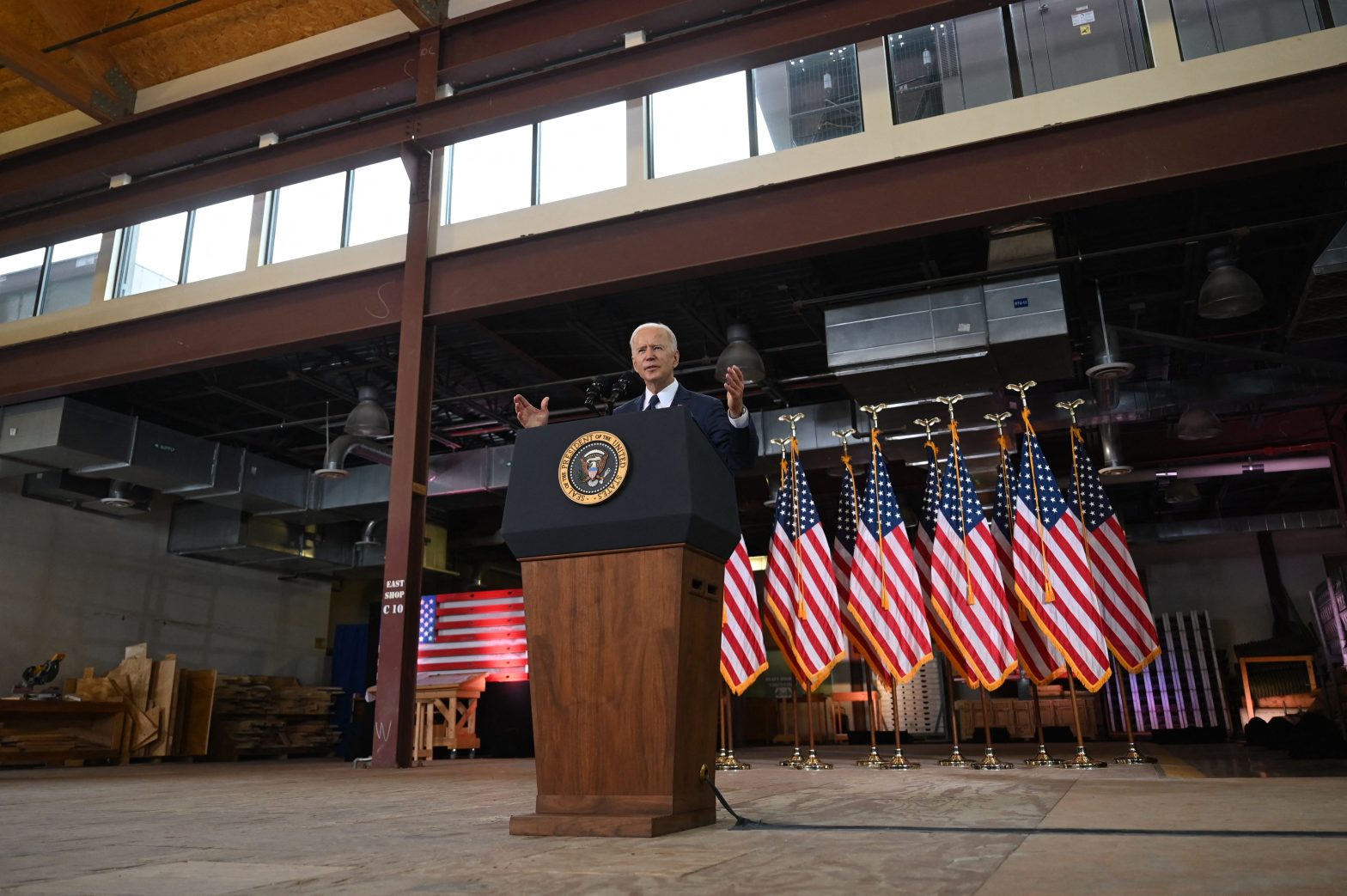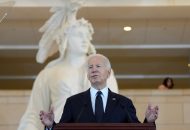The Political Benefits of Building Back Boring
COMMENTARY

Joe Biden is embarking on the biggest government initiative in more than a half-century, “unlike anything we have seen or done since we built the interstate highway system and the space race decades go,” he says.
But when it comes to details, it sounds as boring as fixing the plumbing.
“Under the American Jobs Plan, 100% of our nation’s lead pipes and service lines will be replaced — so every child in America can turn on the faucet or fountain and drink clean water,” the president tweeted.
Can you imagine Donald Trump tweeting about repairing lead pipes?
Biden is excited about rebuilding America’s “infrastructure,” a word he uses constantly although it could be the dullest term in all of public policy.
The old unwritten rule was that if a president wants to do something really big, he has to justify it as critical to national defense or else summon the nation’s conscience.
Dwight Eisenhower’s National Interstate and Defense Highways Act was designed to “permit quick evacuation of target areas” in case of nuclear attack and get munitions rapidly from city to city. Of course, in subsequent years it proved indispensable to America’s economic growth.
America’s huge investment in higher education in the late 1950s was spurred by the Soviets’ Sputnik satellite. The official purpose of the National Defense Education Act, as it was named, was to “insure trained manpower of sufficient quality and quantity to meet the national defense needs of the United States.”
John F. Kennedy launched the race to the moon in 1962 so that space wouldn’t be “governed by a hostile flag of conquest.”
Two years later, Lyndon Johnson’s “unconditional war on poverty” drew on the conscience of America reeling from Kennedy’s assassination.
But Joe Biden is not arousing the nation against a foreign power — not even China figures prominently as a foil — nor is he basing his plans on lofty appeals to national greatness or public morality.
“I got elected to solve problems,” he says, simply. He’s Mr. Fix-It.
The first of these problems was a pandemic that’s killed hundreds of thousands of Americans — Biden carries a card in his pocket updating the exact number — and its ensuing economic hardship.
In response, Congress passed Biden’s $1.9 trillion American Rescue Plan — the most important parts of which aren’t $1,400 checks now being mailed to millions of Americans but $3,600 checks per child paid to low-income families, which will cut child poverty by half.
Now comes his $2 trillion American Jobs Plan, which doesn’t just fund roads and bridges but a vast number of things the nation has neglected for years: schools, affordable housing, in-home care, access to broadband, basic research, renewable energy, and the transition to a non-fossil economy.
Why isn’t Biden trumpeting these initiatives for what they are — huge public investments in the environment, the working-class and poor — instead of rescue checks and road repairs? Why not stir America with a vision of what the nation can be if it exchanges fraudulent trickle-down economics for genuine bottom-up innovation and growth?
Even the official titles of his initiatives — Rescue Plan, Jobs Plan and soon-to-be-unveiled Family Plan — are anodyne, like plumbing blueprints.
The reason is that Biden wants Americans to feel confident he’s taking care of the biggest problems but doesn’t want to create much of a stir. The country is so bitterly and angrily divided that any stir is likely to stir up vitriol.
Talk too much about combating climate change and lose everyone whose livelihood depends on fossil fuels or who doesn’t regard climate change as an existential threat. Focus on cutting child poverty and lose everyone who thinks welfare causes dependency. Talk too much about critical technologies and lose those who don’t believe government should be picking winners.
Rescue checks and road repairs may be boring, but they’re hugely popular — 61 percent of Americans support the American Rescue Plan, including 59 percent of Republicans. More than 80 percent support increased funding for highway construction, bridge repair and expanded access to broadband.
Biden has made it all so bland that congressional Republicans and their big-business backers have nothing to criticize except his proposal to pay for the repairs by raising taxes on corporations, which most Americans support.
This is smart politics. Biden is embarking on a huge and long-overdue repair job on the physical and human underpinnings of the nation while managing to keep most of a bitterly divided country with him. It may not be seen as glamorous work, but when you’re knee-deep in muck, it’s hard to argue with a plumber.
©2021 Robert Reich. Distributed by Tribune Content Agency, LLC.
























